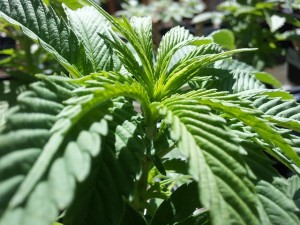The Obama administration is planning to remove a major roadblock to marijuana research, officials said Wednesday, potentially spurring broad scientific study of a drug that is being used to treat dozens of diseases in states across the nation despite little rigorous evidence of its effectiveness.
The policy is expected to increase the supply of marijuana available to researchers.
In taking this step, the Obama administration is further relaxing the nation’s stance on marijuana. President Obama has said he views it as no more dangerous than alcohol, and the Justice Department has not stood in the way of states that have legalized the drug.
For years, the University of Mississippi has been the the only institution authorized to grow the drug for use in medical studies. This restriction has limited the supply of marijuana federally approved for research purposes that scientists said it could often take years to obtain it and in some cases it was impossible to get. But soon the Drug Enforcement Administration (DEA) will allow other universities to apply to grow marijuana, three government officials said.
While 25 states have approved the medical use of marijuana for a growing list of conditions, including Parkinsons and lupus, to name a few, the research to back up many of these treatments is thin. The new policy could begin to change that.
The new policy will be published as soon as Thursday in the federal register, according to the three officials that spoke to the NY Times. They have seen the policy but spoke on the condition of anonymity because they were not authorized to discuss it.
It is unclear how many additional universities would receive licenses to grow marijuana, but the new policy does not set a cap on the number who could qualify. Any institution that has an approved research protocol and the security measures needed to store dangerous drugs can apply.
Researchers will still have to receive approval from federal agencies to conduct medical studies of marijuana, including from the DEA and the FDA (Food and Drug Administration). hose whose projects are funded by the National Institute of Drug Abuse will also need its consent.
However, drug policy advocates, experts and researchers predict that increasing the number of institutions growing marijuana will have a significant practical effect. The University of Mississippi’s monopoly on that role has been a barrier.
Earlier this year, the DEA has suggested that it would possible remove marijuana from the list of the most restricted and danferous drugs by end of June. But this week, the agency dit not take such a step.
The federal government still classifies marijuana as a highly addictive drug without medical value, as it has for 46 years. The DEA did not say when it will answer two petitions demanding a change of that policy, filed separately in 2009 and 2001.
Others were relieved that the DEA had moved to allow more institutions to grow marijuana for research, but not taken it off the list of the most dangerous drugs.



